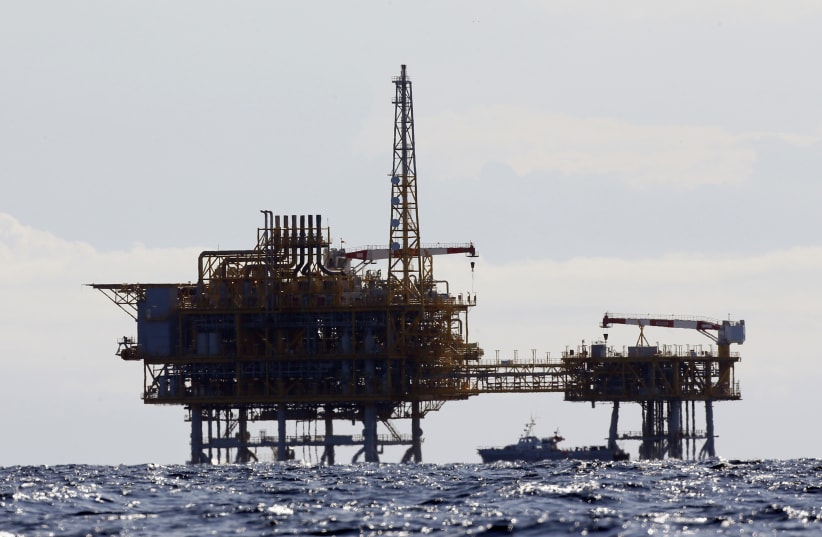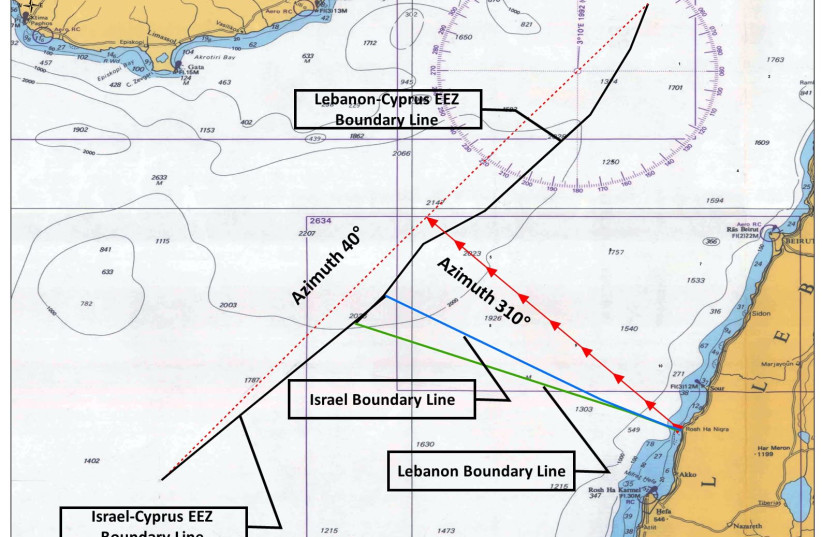Lebanese officials expressed outrage on Saturday after a gas field service company announced last week that it had been awarded a contract to execute a drilling campaign for Greek energy producer Energean off the coast of northern Israel.
The Halliburton Company will collaborate with Energean on three to five well drilling and completions in the Karish North natural gas field, located near Israel's disputed maritime border with Lebanon. The gas field is expected to contain about 1.14 trillion cubic feet (tcf) of gas reserves, according to Energean.
"We are excited to build on our strong relationship with Energean and honored to once again be selected to deliver integrated project management services that maximize the value of their offshore Mediterranean wells,” said Ahmed Kenawi, senior vice president of Europe, Eurasia and Sub-Saharan Africa Region at Halliburton. “This campaign will deliver a fully integrated solution using our Halliburton 4.0 digital platform and drilling technologies to optimize well delivery.”
Israel and Lebanon began US-mediated negotiations concerning their maritime border last year, although talks hit a bump earlier this year when Lebanon increased its demands with a line extending much further south then their original claims, increasing the disputed area from 860 sq.km. to 2,300 sq.km, which would include at least part of the Karish North field.
Israel has rejected the extended claims made by Lebanon, although Energy Minister Karin Elharrar stated in June that “despite Israel’s strong legal case, we are willing to consider creative solutions to bring the matter to a close.”
Israel has become an energy powerhouse in the region in recent years after a number of natural gas fields were discovered in Israeli territorial waters. Israel exports natural gas to both Jordan and Egypt.
In response to the announcement by Halliburton, Lebanese Prime Minister Najib Mikati stated on Saturday that "there is no complacency in this matter, nor is there a waiver of Lebanese rights, and the United Nations must play its role in deterring Israel and forcing it to stop its repeated violations of Lebanese rights and Lebanon's sovereignty," according to Lebanon's National News Agency (NNA).
Lebanese House Speaker Nabih Berri called on Lebanon's Ministry of Foreign Affairs to take "urgent and immediate action in the direction of the UN Security Council (UNSC) and the international community to verify the possibility of a new Israeli attack on Lebanese sovereignty and rights."
Berri added "the Israeli entity's undertaking commissions and concluding offshore exploration contracts for Halliburton or other companies in the disputed area at sea represents a violation, or even a blow to the framework agreement sponsored by the United States of America and the United Nations."
The House Speaker also questioned the failure of Total Novatek and Eni companies to begin drilling in Block No. 9 of Lebanese waters, of which a small part lies in waters disputed by Israel, saying the drilling was supposed to begin months ago.
Amal Mudallali, Lebanon's representative to the UN, submitted a letter to both UN Secretary-General Antonio Guterres and Ireland's delegate to the UN, Geraldine Byrne Nason, on the matter, calling on the UNSC to "ensure that the drilling evaluation works are not located in a disputed area between Lebanon and Israel, in order to avoid any attack on Lebanon's rights and sovereignty."
The letter also called to "prevent any future drilling in the disputed areas and to avoid steps that may pose a threat to international peace and security."
The Israeli Energy Ministry responded that "Israel is not drilling in the area in dispute. The drilling that has been taking place for several years is happening under license for Karish and Karish North, and they are not at all in the area under dispute."
Lahav Harkov contributed to this report.

